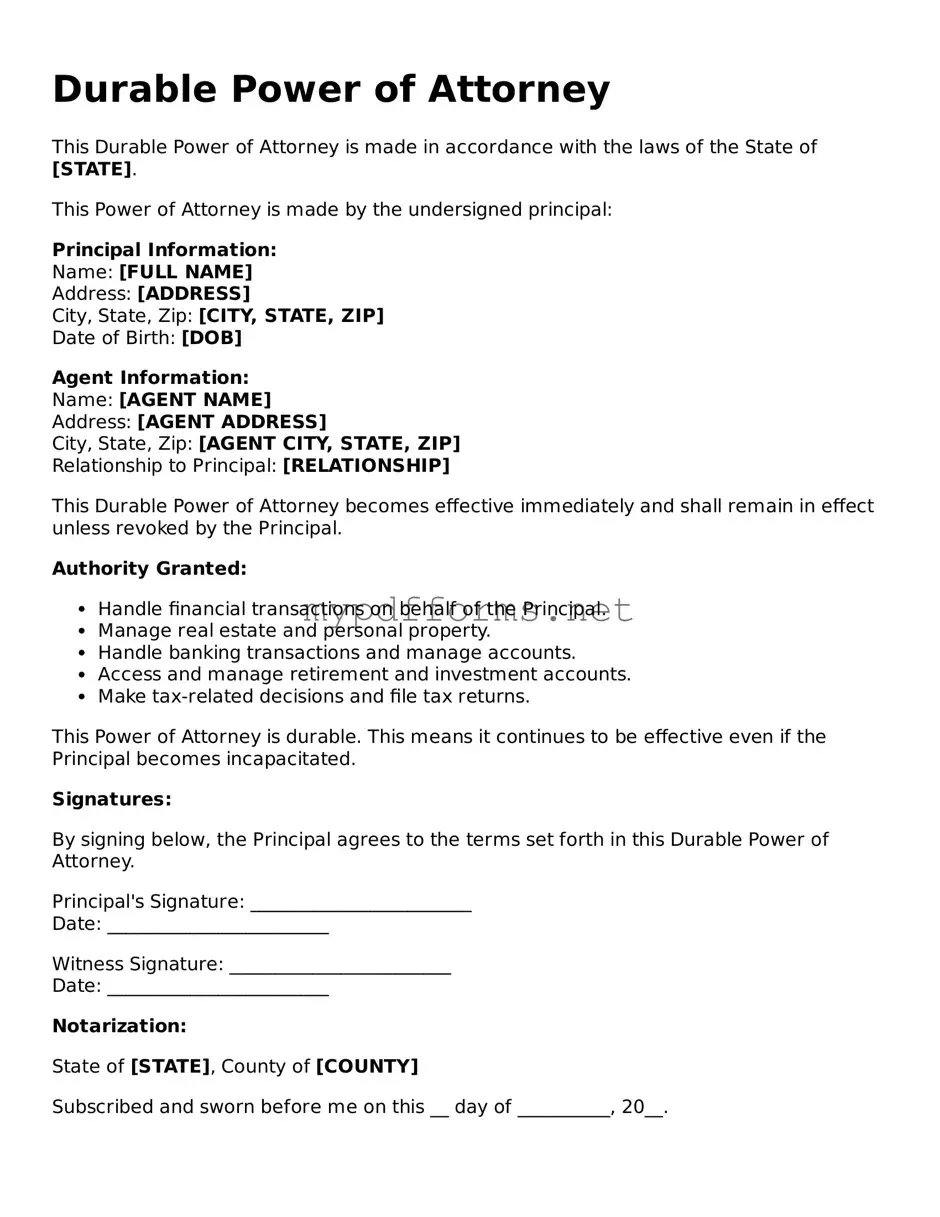Understanding the Durable Power of Attorney (DPOA) is essential for making informed decisions about your legal and financial matters. However, several misconceptions can lead to confusion. Here are ten common misconceptions about the DPOA, along with clarifications to help you navigate this important document.
- Misconception 1: A DPOA only applies to financial matters.
This is not entirely true. While many people use a DPOA for financial decisions, it can also cover health care decisions if specified. You can designate someone to make medical choices on your behalf.
- Misconception 2: A DPOA is only necessary for the elderly.
Age is not the only factor. Anyone can benefit from a DPOA, especially those with chronic illnesses, disabilities, or anyone who travels frequently and wants to ensure their affairs are managed.
- Misconception 3: The agent can do anything they want with the DPOA.
While the agent has significant authority, they must act in the best interest of the principal. They are legally obligated to manage the principal's affairs responsibly and ethically.
- Misconception 4: A DPOA is effective only when the principal is incapacitated.
A DPOA can be effective immediately upon signing, or it can be set to activate only upon incapacitation, depending on how it is drafted. It’s important to clarify this in the document.
- Misconception 5: Once a DPOA is signed, it cannot be revoked.
This is false. A principal can revoke a DPOA at any time, as long as they are mentally competent. This can be done through a written notice to the agent and any institutions that have a copy of the DPOA.
- Misconception 6: A DPOA is the same as a will.
These are two distinct documents. A DPOA allows someone to manage your affairs while you are alive, whereas a will takes effect after your death and outlines how your assets will be distributed.
- Misconception 7: A DPOA is only valid in the state where it was created.
While laws vary by state, many states honor DPOAs created in other jurisdictions. However, it’s wise to check local laws to ensure compliance and effectiveness.
- Misconception 8: You can use a DPOA for illegal activities.
This is a serious misunderstanding. A DPOA cannot be used to authorize illegal actions. The agent must operate within the law at all times.
- Misconception 9: A DPOA is too complicated to create without a lawyer.
While legal guidance can be beneficial, many states provide simple forms that individuals can fill out on their own. It’s crucial, however, to understand the implications of the choices made.
- Misconception 10: All DPOAs are the same.
This is misleading. DPOAs can vary significantly in terms of authority granted and conditions. It’s essential to tailor the document to fit your specific needs and circumstances.
By addressing these misconceptions, individuals can better understand the Durable Power of Attorney and ensure that their wishes are honored and respected.

